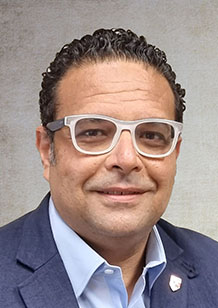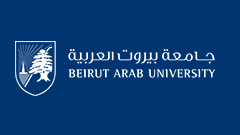Volume 3, Issue 1 (2021)
Ahmed Elseragy, PhD - Head of School of Engineering, University of Lincoln, United Kingdom
“The world is changing, users are changing and they are becoming increasingly aware of the role creative industries have played in creating many of the social, economic and environmental challenges we face. In 2019 at the 74th session of the UN General Assembly, 2021 was declared the International Year of Creative Economy for Sustainable Development. Indonesia was the main sponsor of the proposal, which was presented by a global grouping of countries, including Australia, China, India, Indonesia, Mongolia, Philippines and Thailand. The proposal recognised the need to promote sustained and inclusive economic growth, foster innovation and provide opportunities, benefits and empowerment for all and respect for all human rights.
It also identified the ongoing need to support developing countries and countries with economies in transition in diversifying production and exports, including in new sustainable growth areas, including creative industries. More details about this UN resolution, can be found through the following link: https://unctad.org/topic/trade-analysis/creative-economy-programme/2021-year-of-the-creative-economy
Industry 4.0 and disruptive technologies are changing users experience including creative industries processes and operations. Creative industries including manufacturing processes and operations are becoming progressive enough to respond pro-actively to these changes and rapidly moving sustainability and social change (SCS) issues from the periphery of their comms plan to the beating heart of their business model. Disruptive technologies have put huge pressure and obligation on creative industries to embrace this change as an opportunity rather a problem—an opportunity to recruit, motivate and retain staff; to build brand equity; to drive business growth. These shifts of social change will not only create new opportunities and new roles within creative practitioners, but will also challenge the industry to embrace new innovative concepts, skills and responsibilities towards sustainability.
It is great to see diverse research outputs in this issue of BAU International Journal of Creative Sustainable Development with intensive interdisciplinary - transdisciplinary research related to Creative Sustainable Development. For example, researchers in this issue have investigated how reviving marine heritage can be a sustainable creative industry. Others have presented research work around the Evaluation of the Effectiveness of Continuing Professional Development in the Pharmaceutical Workplace. Also the emergence of creative industries business models based on completely new economic principles (collaborative consumption, social innovation, shared value), the ripple effect is clear: users are changing, products are changing, we must change and innovate or die. The papers in this journals issue are calling for creative industries design, process and operations to be more responsible and sustainable. The papers in this issue have also covered in this issue have covered Advances and Sustainable Technology, Innovation and Creative Sustainability, Sustainable Healthcare Services and Industry, Energy and Environmental Sustainability, Sustainable Human Development, and Sustainable Legalization and Institutional Reform. The papers have outlined the context of creative industries and sustainably from different perspectives that can refine our understanding of the wider impacts of their nexus.
Undoubtedly, creative industries and sustainably will allow researchers to use new concepts, skills and innovative solutions to drive our role further up the value chain. This will lead to more impactful research, advise, co-create and innovate the products, services and commercial opportunities that will empower sustainable creative industries and make a positive difference in the context of its financial growth.
Finally I encourage fellow researchers and scientists to leverage a surge in new research in behavioural economics, social psychology, network theory and cognitive analysis to better understand consumers and empower pro-social behaviour change within sustainable creative industries within the manufacturing digitalisation era the world witnesses at the moment. Researchers in our region need to become more progressive in their research methods to generate insights that reflect the real lives of real human beings, users and wider stakeholder communities within creative industries This in turn will mean we can develop strategy and creative that is both respectful and resonant. Researchers need to step down from our ivory towers and embrace collaborative approaches to creative development and innovation—co-designing solutions with creatives, clients and consumers.
Articles
EXTENSIVE DESCRIPTIVE LITERATURE REVIEW REVEALING THE IMPACT OF BANKING SECRECY ON MONEY LAUNDERING: PROMINENCE ON THE LEBANESE BANKING SECTOR
Nour Mohamad Fayad and Sara Karam Nassredine
THE ROLE OF THEME PARKS IN CREATING SUSTAINABLE DEVELOPMENT
Islam Hamdy Elghonaimy and Salma AlSaeed
THE FEASIBILITY OF USING A PHENOMENOLOGICAL APPROACH TO EXPLICATE THE EXPERIENCE OF BEING-IN-COMMUNITY: EXPERIENCE OF REVIVING THE MARINE HERITAGE IN BAHRAIN
Islam Hamdy Elghonaimy and Layal Tahsine Ahmed Channaa
ERADICATION OF ENTEROCOCCUS FAECALIS IN CONVENTIONAL ENDODONTIC RETREATMENTS (A RANDOMIZED CLINICAL TRIAL)
Fadl H. Khaled, Roula S. Abiad, Khaled Abd El Galil, and Essam Osman
CUSTOMERS LOYALTY: DOES VALUE CO-CREATION BECOME INDISPENSABLE FOR UNIVERSITIES?
Ayman Mahmoud Bazzi, Alaaeddine Abbas Ali, and Nehale Mostapha
EVALUATION OF ROOT-END RESECTION WITH CONVENTIONAL AND ULTRASONIC METHODS: A SINGLE-BLIND, RANDOMIZED IN-VITRO STUDY
Mohammad Al Shammaa, Roula S. Abiad, and Nayer Abo Elsaad
THE EFFECT OF STUDENTS-AS-CUSTOMERS CONCEPT ON THE QUALITY OF EDUCATION AT UNIVERSITIES
Abeer Ahmad Sherry
EVALUATION OF THE EFFECTIVENESS OF CONTINUING PROFESSIONAL DEVELOPMENT IN THE PHARMACEUTICAL WORKPLACE: A CROSS-SECTIONAL STUDY IN LEBANON
Georges Hatem, Mathijs Goossens, Diana Ghanem, and Roula Bou Assi
A REVIEW OF KNOWLEDGE RISK CONCEPTION
Rabih A. El Khatib, AlaaEldine Abbass Ali, and Nehale Mostapha
A COMPARISON BETWEEN THE EFFECT OF DIFFERENT PRESSURES OF AIR PARTICLE ABRASION BEFORE AND AFTER SINTERING WITH AND WITHOUT ZIRCONIA LINER ON BOND STRENGTH OF RESIN TO ZIRCONIA SURFACE
Lina Mohamad Saadeh, Ehab A. Farghaly, Mohammad M. Rayyan, and Essam Osman

Guest Editor
- Ahmed Elseragy, PhD
- Head of School of Engineering, University of Lincoln, United Kingdom

